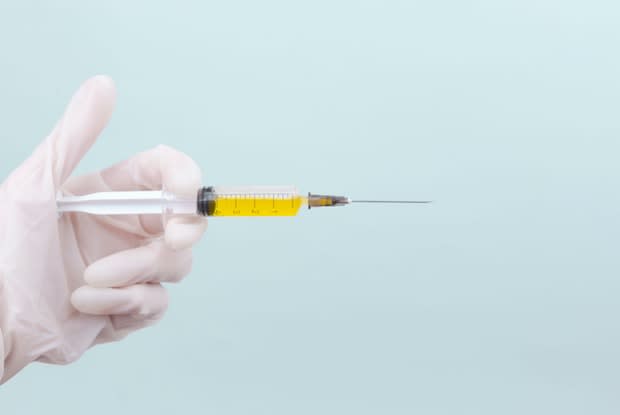Table of contents
a. What Causes Behcet’s Disease?
II. Symptoms of Behcet’s Disease
III. Treating Behcet’s Disease with Colcrys
What is Behcet’s Disease?
Behcet’s disease (also known as Behcet’s syndrome) is a serious condition that affects inflammation in the body. Behcet’s disease is an autoimmune disorder that causes the immune system to attack its own healthy cells. This condition varies in symptoms and frequency of symptoms greatly between patients.
There is no cure for Behcet’s disease, although the pain caused by symptoms may be relieved by Colcrys (colchicine) or other medications.
a. What Causes Behcet’s Disease?
It is believed that Behcet’s disease is a result of both environmental and genetic factors. Researchers have identified several genes that are associated with Behcet’s disease. Gene HLA-B51 is specifically thought to be involved in causing the disease. [1] It is thought that for those who have these genes, Behcet’s disease may be triggered by a virus or certain bacteria. However, more research into the exact cause of Behcet’s disease is still needed.

There are also several risk factors that increase the risk of developing Behcet’s disease. Location can be a key factor in patients contracting Behcet’s disease. The condition is more common in people living in countries in the Middle East and East Asia, including Turkey, China, and Japan. However, Behcet’s disease can be found in the United States and can affect people of any ethnicity. [2]
Additionally, this disease is more common in people aged between 20 and 40. Behcet’s disease affects both men and women but may be more severe in men. [3]
Symptoms of Behcet’s Disease
There are several different symptoms of Behcet’s disease. Symptoms may initially seem unrelated because they can affect a wide range of body areas. Some patients may not realize that the symptoms are all caused by the same disease. Few other conditions affect blood vessels of all sizes across the body in the way that Behcet’s disease does. [1]
The most common symptoms of Behcet’s disease include:
Mouth sores: This is the most common symptom of Behcet’s disease. These ulcers look similar to canker sores and usually last between one and three weeks. Three-quarters of Behcet’s patients have mouth sores. [4]
Inflammation: Inflammation can affect the eyes, brain, blood vessels, and other areas of the body. Symptoms of inflammation may include blurred vision, swelling, fever, or poor balance.
Body sores: These may look like acne, rashes, or red, open sores. Body sores may be painful and occur on the lower legs or genitals.
Eyes: As well as eye inflammation (uveitis), Behcet’s may cause eye pain, irritation, or lead to reduced vision and blindness.
Aches and pains: Behcet’s may also cause headaches or pains in the joints, arms, legs, eyes, or abdomen.
Other symptoms: Other symptoms include diarrhea, bloody stools, poor balance, disorientation, and swelling of the joints. [3]
Behcet’s disease varies between each patient. Some patients may experience the same symptoms over an extended period of time, while others may have symptoms that recur and clear regularly.

a. Complications
As well as the above symptoms, complications arising from Behcet’s disease can cause several other conditions. These complications depend on a patient’s specific symptoms of Behcet’s disease. Inflammation in the brain and nervous system can result in a stroke. If inflammation occurs in the large arteries, patients could suffer complications, including aneurysms or blood clots. Additionally, uveitis may lead to decreased vision or even blindness. [3]
Treating Behcet’s Disease with Colcrys
a. Diagnosis
It may be difficult for doctors to diagnose Behcet’s disease as there is no physical test for the condition. Instead, doctors will typically determine whether a patient has a disease based on the signs and symptoms displayed. Blood and other laboratory tests may also be used to rule out other possible conditions.
Mouth sores are the most common symptom of Behcet’s disease. Diagnosis usually requires a patient to have had mouth sores at least three times within the previous year as well as displaying at least two of the following symptoms over the same period of time:
- Skin sores
- Genital sores
- Eye inflammation [5]
Behcet’s disease is an autoimmune condition where the immune system attacks healthy cells. Another part of the diagnosis may include a pathergy test. This involves inserting a sterile needle into the skin. If small, red bumps begin to form under the skin, then this can show that the immune system may be overreacting to a minor injury. Pathergy tests can support a diagnosis of Behcet’s disease but is not enough in itself to diagnose Behcet’s disease. [1]

b. Treatment
There is no known cure for Behcet’s disease. However, treatment is available. Treating Behcet’s disease can involve both relieving symptoms and preventing more serious complications from occurring.
A key medication to treat Behcet’s disease is Colcrys (colchicine). Colcrys can be used to treat joint swelling and inflammation, and recurring oral and genital sores. Other medications such as Imuran (azathioprine) and Neoral (cyclosporine) may be prescribed to prevent the immune system from attacking healthy cells.
Other medications may also be used to treat specific symptoms. This includes topical corticosteroids to treat skin sores, mouthwashes to treat mouth sores, and eye drops to relieve eye inflammation.
The content in this article is intended for informational purposes only. This website does not provide medical advice. In all circumstances, you should always seek the advice of your physician and/or other qualified health professionals(s) for drug, medical condition, or treatment advice. The content provided on this website is not a substitute for professional medical advice, diagnosis or treatment.
